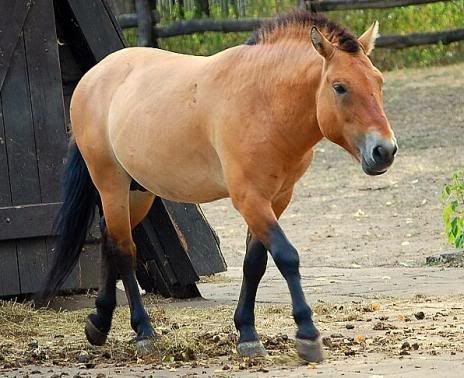Przewalski’s Horse: A Story of Survival
Also known as the Takhi or the Mongolian wild horse, the Przewalski’s horse is the last true species of wild horse on Earth. Native of the steppes of China and Mongolia, the species once thrived in a territory extending over Central Asia and parts of Europe (from Russia to Germany). Despite its uniqueness, the Przewalski’s horse is endangered, with only 1,500 individuals remaining today, most of those in captivity. Yet researchers all over the world have tried their best to save this beautiful horse.
There are many wild horses running wild even today; we are all familiar with mustangs, for example – but they are simply the offspring of domesticated animals. In contrast, the Przewalski’s horse was always a wild animal, and so it has remained to this day. (One possible explanation for the incompatibility of this wild horse with the life of a domesticated animal is the fact that it has two chromosomes more than the horses with which we are more familiar.)
Fighting for the Survival of the Przewalski’s horse
Considering what this small, stocky horse has faced, it is a wonder that it has not become extinct. The reasons for its decline, which begun in the 19th century, vary. The Przewalski's horse has a slow rate of reproduction – the mare gives birth to a single foal after a pregnancy period that lasts one year – but more significant was its interaction with humans and their domesticated horses. For many years, Przewalski’s horses interbred with domesticated horses, which led to the destruction of their own genetic heritage.
In addition, Przewalski’s horses suffered from excessive hunting and the loss of their habitat – again, a result of human interference. The result of all this was heartbreaking. During the 20thcentury, their number was reduced to a few individuals, and in 1969 the last horse was seen in its natural environment, with the species soon after declared extinct in the wild.
 http://www.environmentalgraffiti.com/conservation/news-przewalski%E2%80%99s-horse-story-survival
http://www.environmentalgraffiti.com/conservation/news-przewalski%E2%80%99s-horse-story-survival